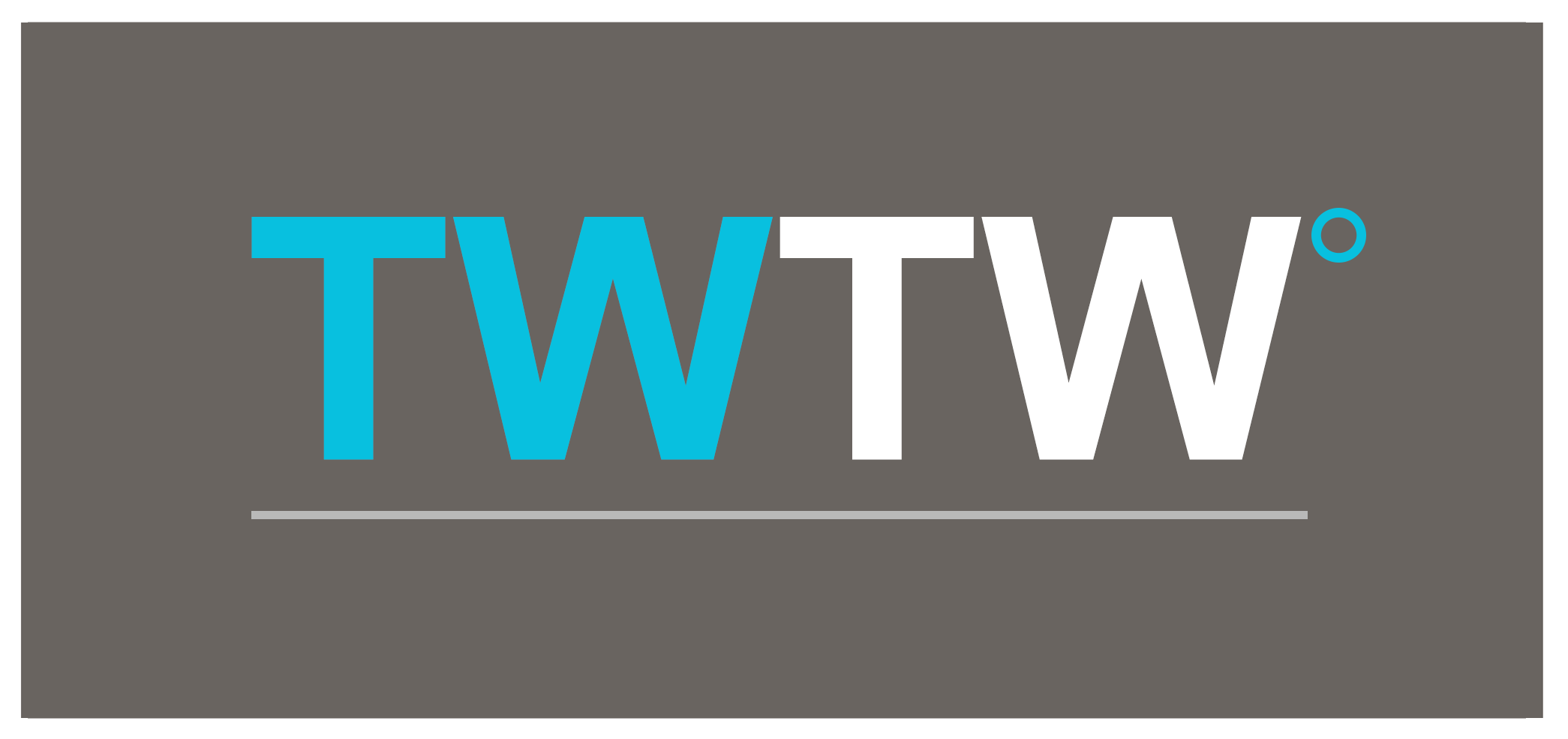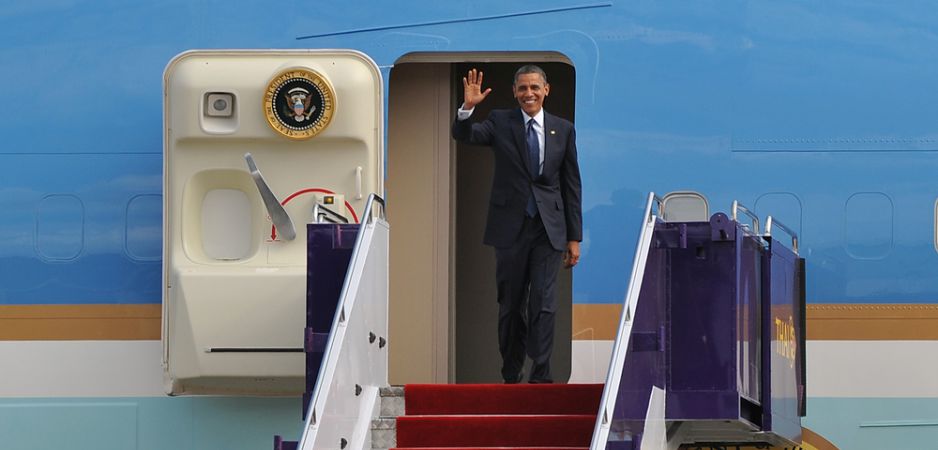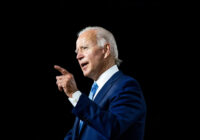Entrepreneurship can transform emerging economies, but governments still have a role to play.
Adam Smith, a professor of moral philosophy who practiced his craft in the Scotland of Enlightenment, would probably be pleased this week. For the first time, the Global Entrepreneurship Summit (GES) was held in sub-Saharan Africa and US President Barack Obama turned up to kick off the show. “Africa is on the move,” declared the president, who has Kenyan roots and paid obeisance to Smith’s idea that humans have “the propensity to truck, barter and exchange.”
Smith, a Presbyterian Scot, threw the gauntlet to Catholic mercantilists by declaring that the wealth of a land lay not in its gold and silver, but in the productive capacity of its people. He saw trade as a win-win with the butcher, the brewer and the baker focusing on their crafts and then exchanging the fruits of their efforts, thereby allowing each to consume more meat, whiskey and bread. Africa, a continent blighted by the legacy of imperialism and the death kiss of bureaucratic socialism, is starting to embrace Smith and usher in a new zeitgeist.
At the GES in Kenya, Obama declared that his administration had provided over $1 billion of support to entrepreneurs around the world over the last year. This is less than a drop in the ocean when the total world economy is valued at over $77 trillion. Yet it is a start, and this week’s GES is significant for three reasons.
First, it sets out a new economic paradigm for Africa. By 2050, Africa’s population will double and reach nearly 2 billion. In the next 15 years, 370 million youth will enter the job market. There is no way that governments or even big business can employ such numbers. There are limits to the number of bureaucrats, soldiers and peons that the African tax payer can fund. Besides, African governments are better off investing their money in education and infrastructure. Even building ports and railways is unlikely to create enough jobs. Eventually, it is only new small and medium-sized enterprises (SME) that will employ young Africans. Hence, a key contribution of the GES is that it makes entrepreneurship “cool” for both young Africans and their leaders.
Second, the GES recognizes the economic potential and entrepreneurial energy of Africa. In popular imagination, Silicon Valley is the Mecca of entrepreneurship. It has geniuses like Steve Jobs and Elon Musk reimagining the world. Bold venture capitalists take big bets on them, and armies of engineers march together to transform the planet. The reality is a little different to the romance. Silicon Valley has turned bourgeois in more ways than one. The Facebook generation far too often focuses on its rich world problems and does not give a damn about the fact that more than 750 million people on the planet lack access to safe water. In fact, most people in Silicon Valley are now working for big companies such as Apple, Google and Facebook, while people in many parts of the poorer world have no option but to hustle. Hardly anyone in Silicon Valley struggles like women entrepreneurs in Lesotho who rear poultry and pigs to make a living. This is a far more riveting story than yet another iPhone app.
 Survival in many poor countries is an incredibly entrepreneurial affair. Slums in Asia, Africa and Latin America tend to be bustling with initiatives and communities from barber shops to childcare centers. Tapping this energy and providing an institutional support system for entrepreneurs to thrive is the big challenge for these countries. Some experiments such as rainwater harvesting, microcredits to women and chronicling local innovations have been successful. These have to be replicated and multiplied.
Survival in many poor countries is an incredibly entrepreneurial affair. Slums in Asia, Africa and Latin America tend to be bustling with initiatives and communities from barber shops to childcare centers. Tapping this energy and providing an institutional support system for entrepreneurs to thrive is the big challenge for these countries. Some experiments such as rainwater harvesting, microcredits to women and chronicling local innovations have been successful. These have to be replicated and multiplied.
Third, as Obama pointed out, governments still matter. Corruption blights possibilities for individuals and economies. If entrepreneurs have to spend half their day running from pillar to post to get approvals and bribe functionaries to get started, they waste time and energy. Starting something is hard. Corruption often makes it daunting. The worst aspect of this phenomenon is that governments end up robbing their people instead of building schools, hospitals and roads.
Entrepreneurship in emerging economies would get a great shot in the arm with some simple reforms. For instance, investing in schools and slashing red tape would be a good start. Figuring out how to clean garbage would help too. The Lebanese are descendants of Phoenicians and legendary entrepreneurs. Yet the residents of Beirut are drowning in an ocean of trash. In India, 80% of sewage flows into India’s rivers, damaging the health and endangering the lives of hundreds of millions. Many of these are farmers and fishermen who are going out of business and having to flee to urban slums. While entrepreneurship is empowering, there are certain things that require collective action. Making laws, providing schooling and cleaning cities or rivers are things only governments can do and have to do.
Speaking of laws, US Senators ended restrictions on Americans traveling to Cuba and eased trade barriers. Obama’s bold rapprochement with Cuba seems to be attracting bipartisan support. Many Americans want to go diving in the coral reefs of Cuba, soak up the romantic ambience of Havana and sell stuff to their neighbors. Already, Oklahoma and Nebraska are gleefully eyeing a new market for their wheat.
Finally, the Islamic State (IS) conducted a ghastly attack in Suruc, a town in Turkey where young Kurdish activists were meeting to discuss the reconstruction of Kobane across the Turkey-Syria border. Earlier this year, Kurdish forces drove back IS from Kobane as Turkish tanks silently looked on. All that the Turks did was remove the Tomb of Suleyman Shah, the grandfather of the Ottoman Empire, to save it from IS. Now, Turkish jets have struck IS targets in Syria and the separatist Kurdistan Workers’ Party (PKK) in Iraq.
So far, Turkey has tried to stay out of the Middle East’s version of the Thirty Years’ War. It even maintained a truce for over two years with the PKK. Now, Turkey has been sucked into the conflict. Its leaders are playing a risky hand. Turkish forces have taken on both IS and the PKK, who in turn are fighting each other. This makes the Turkish state vulnerable to double-pronged attacks and the conflict in the Middle East bloodier and messier.
*[You can receive “The World This Week” directly in your inbox by subscribing to our mailing list. Simply visit Fair Observer and enter your email address in the space provided. Meanwhile, please find below five of our finest articles for the week.]
[seperator style=”style1″]Obama’s Kenyan Homecoming: Dreams From His Father’s Land[/seperator]
Obama’s visit to Kenya comes off the most important month of his presidency.
History is upon us as an acclaimed umbilical homecoming beckons. Kenya will play host to the most significant “foreign” visitor to ever grace the country’s shores. US President Barack Obama will be visiting the nation of his father’s birth on July 24. The three-day tour to the land that swept the backdrop of his seminal book, Dreams from My Father, will be his first as US president—and potentially his last as leader of the free world.
Excitement in Kenya is at a fever pitch. A friend who used to work at the US Embassy in Nairobi sent over an amusing article showing how those Kenyans drunk with jubilation in the historical moment have been heard to make atypical proclamations, some bordering on the bizarre. But with such an unprecedented visit, who is to say what type of excitement in these circumstances is normal?
Upon his historical election in 2008, many expected Obama… Read more
[seperator style=”style1″]Iran is Not the Threat[/seperator]
The Israeli prime minister opposes the Iran deal because the Iranians support Hamas and Hezbollah, says Miko Peled.
Binyamin Netanyahu’s name is in the headlines again—this time with the news of the Iran deal. He rejects the agreement, he called it a disastrous and historic mistake and he didn’t miss the opportunity to say that Israel will defend itself.
Two questions must be raised in light of the Israeli prime minister’s outrage. The first is why? And the second is why does anyone care?
Netanyahu opposes the Iran deal because the Iranians support Hamas and Hezbollah. Both of these organizations were created in response to Israeli aggression and occupation—the former in Palestine and the latter in southern Lebanon.
It was the dedicated resistance of Hezbollah that ended the 20-year Israeli occupation of southern Lebanon and made it possible for Lebanese people to return to their homes in the south.
Hamas was democratically elected to govern. It maintains some semblance of a government in… Read more
[seperator style=”style1″]Getting Down to Business in Cuba[/seperator]
American companies are more eager than ever to set up shop in Cuba.
In case you missed it, the United States and Cuba now have diplomatic relations for the first time in 54 years. Unfortunately, the outdated economic embargo is smothering the tremendous potential this opening offers.
First, some background. The embargo, put in place in the early 1960s to punish the revolutionary government, has held back the Cuban economy and poisoned American-Cuban relations for decades.
When Washington spurned Cuba, the Soviet Union (USSR) became the island’s top trading partner, taking some of the sting off the embargo. But after the USSR collapsed in 1991, Cuba plunged into a deep economic crisis.
Venezuela mostly replaced Russia as a reliable supplier of cheap oil years ago. Now, Cubans fear that turmoil in the South American nation will knock out this lifeline too.
Long-term economic distress has frayed Cuba’s impressive education and health care systems. Its heavily subsidized food rations no longer meet basic needs. And the high prices unregulated… Read more
[seperator style=”style1″]Why Are Interest Rates So Low?[/seperator]
A lack of consensus on a policy prescription keeps interest rates lower for longer.
The global economic environment of recent memory has been unusual to say the least. Persistently low and even negative interest rates have failed to spark an adequate revival in economic fortunes as growth remains subpar. This year has seen the commencement of easing cycles by central banks in China and India, while the European Central Bank (ECB) has ventured into unprecedented negative territory. Richard Koo, Nomura Research Institute’s chief economist, aptly stated that we have moved from an “unusual” world of persistently low and near zero interest rate policy (ZIRP) to a ridiculous one in which negative interest rate policy (NIRP) has become the norm.
As is the nature of economists, there has been widespread disagreement as to which emerging theory best explains the economic quagmire we currently find ourselves in. To better understand modern-day economics, it is important to delve into the main prevailing theories: Secular stagnation, global savings glut… Read more
[seperator style=”style1″]Cult Attraction is Not a Problem of Logic[/seperator]
What are cults, and how do they work?
Cults come in a great variety of forms: from the largely religious ones to terrorist groups that train suicide bombers; from right-wing to the ingrown “left” political groups that thrived in the 1970s and 1980s; and from get-rich-quick to personal growth groups. Although they are not all violent, they do share common features that enable them to exert extraordinary levels of control over their members.
The mechanisms that drive these groups are not as mysterious as we may think. Seventy years of study has been done to understand them.
Starting during the horrors of World War II and then Joseph Stalin and Mao Zedong’s totalitarian regimes, scholars did groundbreaking work to try understand the forces that produced extreme obedience to charismatic leaders. This period saw, among others, Hannah Arendt’s great work, The Origins of Totalitarianism; Stanley Milgram’s extraordinary experiments where ordinary people administered seemingly excruciating electrical shocks to strangers; and Robert Jay Lifton’s insightful work on brainwashing… Read more
The views expressed in this article are the author’s own and do not necessarily reflect Fair Observer’s editorial policy.
Photo Credit: Mong Multiply / Shutterstock.com
 We bring you perspectives from around the world. Help us to inform and educate. Your donation is tax-deductible. Join over 400 people to become a donor or you could choose to be a sponsor.
We bring you perspectives from around the world. Help us to inform and educate. Your donation is tax-deductible. Join over 400 people to become a donor or you could choose to be a sponsor.
Support Fair Observer
We rely on your support for our independence, diversity and quality.
For more than 10 years, Fair Observer has been free, fair and independent. No billionaire owns us, no advertisers control us. We are a reader-supported nonprofit. Unlike many other publications, we keep our content free for readers regardless of where they live or whether they can afford to pay. We have no paywalls and no ads.
In the post-truth era of fake news, echo chambers and filter bubbles, we publish a plurality of perspectives from around the world. Anyone can publish with us, but everyone goes through a rigorous editorial process. So, you get fact-checked, well-reasoned content instead of noise.
We publish 2,500+ voices from 90+ countries. We also conduct education and training programs
on subjects ranging from digital media and journalism to writing and critical thinking. This
doesn’t come cheap. Servers, editors, trainers and web developers cost
money.
Please consider supporting us on a regular basis as a recurring donor or a
sustaining member.
Will you support FO’s journalism?
We rely on your support for our independence, diversity and quality.












Comment